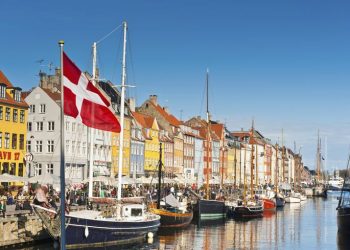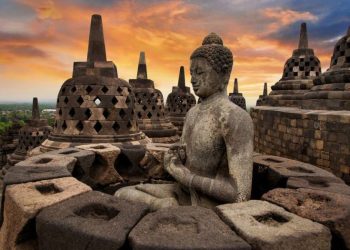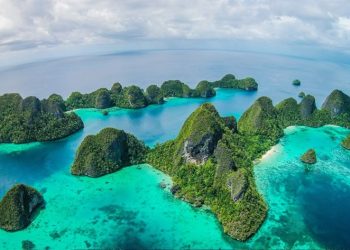Rempang, Indonesiasentinel.com — One year has passed since the tragic events of September 7, 2023, on Rempang Island, where clashes between local Malay Rempang residents and security forces tasked with overseeing the development of Rempang Eco City, a National Strategic Project (PSN), left deep scars. The incident not only disrupted lives but also inflicted lasting trauma on residents fighting to protect their ancestral land.
On that fateful day, approximately 1,000 personnel from the integrated BP Batam team were deployed to seize land from residents, marked by the forcible installation of stakes. This action sparked violent confrontations, resulting in suffering for many, including schoolchildren. Nine residents were arrested by the police for allegedly resisting the government’s actions.
Ridwan (62), a witness who was struck by rubber bullets during the incident, described the event as an unforgettable tragedy. “We were not willing to let Rempang be managed by outsiders. We fought fiercely that day,” Ridwan said during a pilgrimage to the ancestral graves on Rempang Island in Lubuk Lanjut.
Residents of Rempang, like Ridwan and others, felt compelled to act. They united, strengthening their bonds to defend their ancestral land, which has a rich history dating back to the Riau-Lingga Kingdom era.
Muhamad Sani (67), a ninth-generation native of Rempang Island, asserted that the island is not just an empty plot of land. Historically, it served as a defensive stronghold for the Riau-Lingga Kingdom and a home for their ancestors. “That’s why we are holding this pilgrimage—to remember the events and ask God that our village not be displaced,” Sani said.
Known locally as Tok Itam, Sani recounted the island’s long history passed down through generations, highlighting its role in defending against foreign invaders. Traditionally, ancestors protected the waters of Rempang by constructing traditional jongkong boats to safeguard the borders from external threats.
For the Rempang community, the island is more than just a residence. It is a sacred heritage passed down through generations, embodying profound historical and cultural significance.
“We urge the government to relocate the PSN project. There are many other large islands that could be developed—why must our ancient village be displaced?” Tok Itam pleaded.
Suku Mante, Mysterious Tribe Living in the Vast Forests of Aceh
Rempang Island, with its rich history and strong cultural roots, stands at a crossroads. On one side, modern development continues to be pushed by the government, while on the other, residents remain steadfast in preserving their ancestral heritage, which predates the arrival of the Dutch East India Company in 1675. For them, Rempang is more than land; it symbolizes identity and pride that cannot be replaced.
The people of Rempang continue to hope that their voices will be heard, that their ancient villages and ancestral graves will be preserved, and that such a tragedy will never occur again.
(Ray)

























